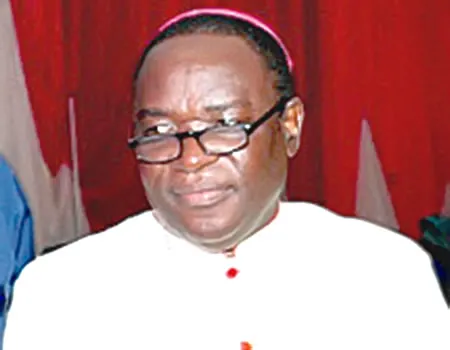

Bishop Kukah
The Catholic Bishop of Sokoto Diocese, Dr Matthew Hassan Kukah, has called on the Federal Government of Nigeria to put an end to the incessant killings of innocent Nigerians by Boko Haram, kidnappers and Bandits.
The Bishop said this at a procession, where hundreds of Catholic faithful in Sokoto on Wednesday moved round the Sokoto metropolis, to mark the Ash Wednesday in commemoration of the commencement of lent.
According to the Bishop, the situation in the country where people can not sleep with eyes closed is worrisome.
ALSO READ: Coronavirus: Senate raises the alarm, says no proactive measures in place
“At this point we are in the country now, no reasonable Nigerian can acquiesce himself,” he said.
Bishop Kukah further disclosed that Nigeria had bled enough and it was high time for those in authorities to rise up to their responsibilities.
The cleric averred that many have become widows and orphans, stressing that Nigeria is going the way of Rwanda.
However, he said that with prayers, the problems confronting the nation can be surmounted.
Kukah said the essence of the procession is to mourn and pray for those that were massacred by insurgency, banditry and other forms of insecurity in the country.
He pointed out that the lent season is a period of soberness and prayer, saying the church would use the period to pray for peace to reign in the country.
“As Christians, our God answers prayers because he a living God.”
The procession started from Holy Family Cathedral Ahmadu way through Abdullahi Fodio road, Aliyu Jodi way and ended at the Cathedral.
Agunloye is standing trial on an amended seven-count charge bordering on forgery, disobeying presidential directive…
The Anambra State Police Command has been thrown into mourning following the tragic death of…
Another major factor is the removal of...
“Assuming but not conceding that I was in the said facility, how does that translate…
“I am deeply honoured to receive this honorary doctorate from Tanzania’s most prestigious university. I…
Experts attribute the decline to the stabilisation of the macroeconomic environment, a drop in...
This website uses cookies.